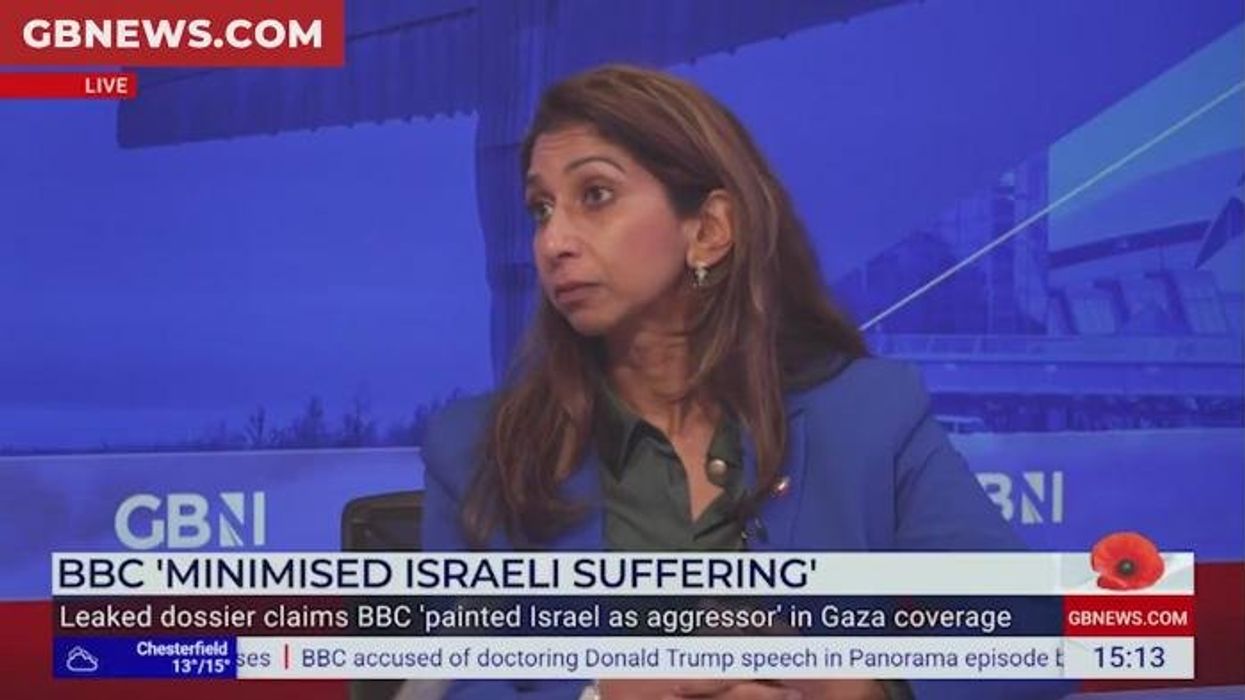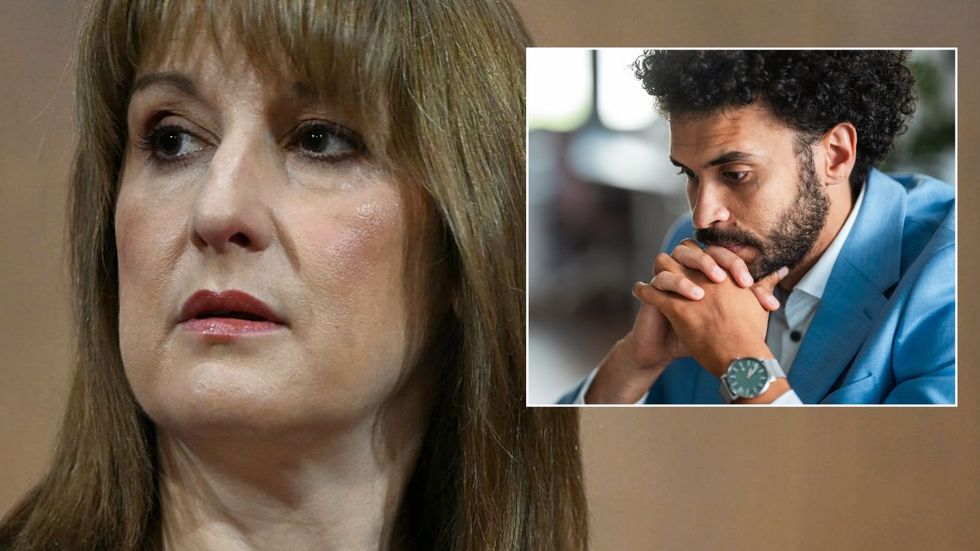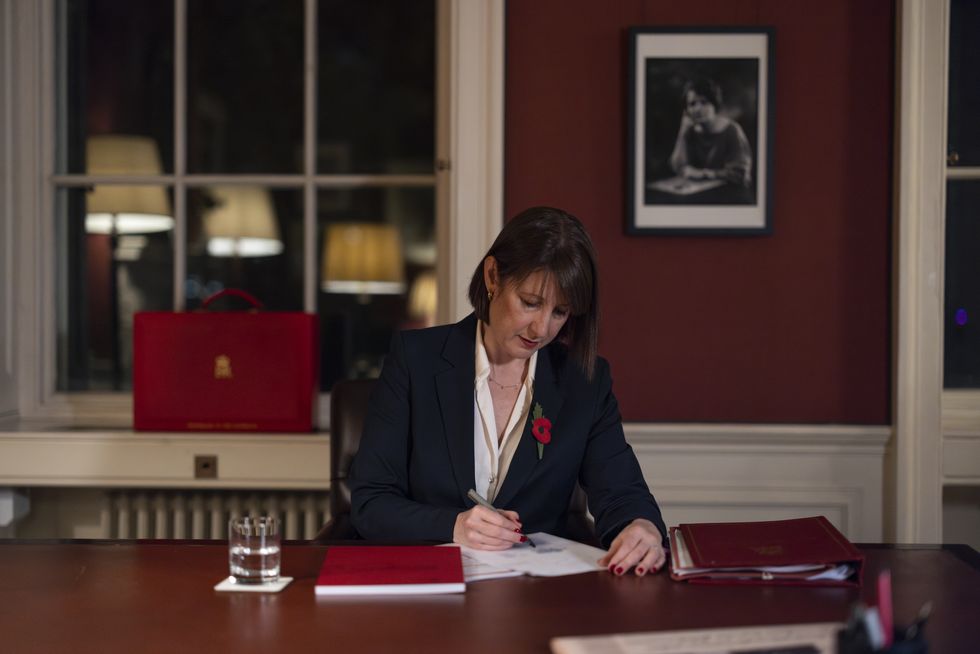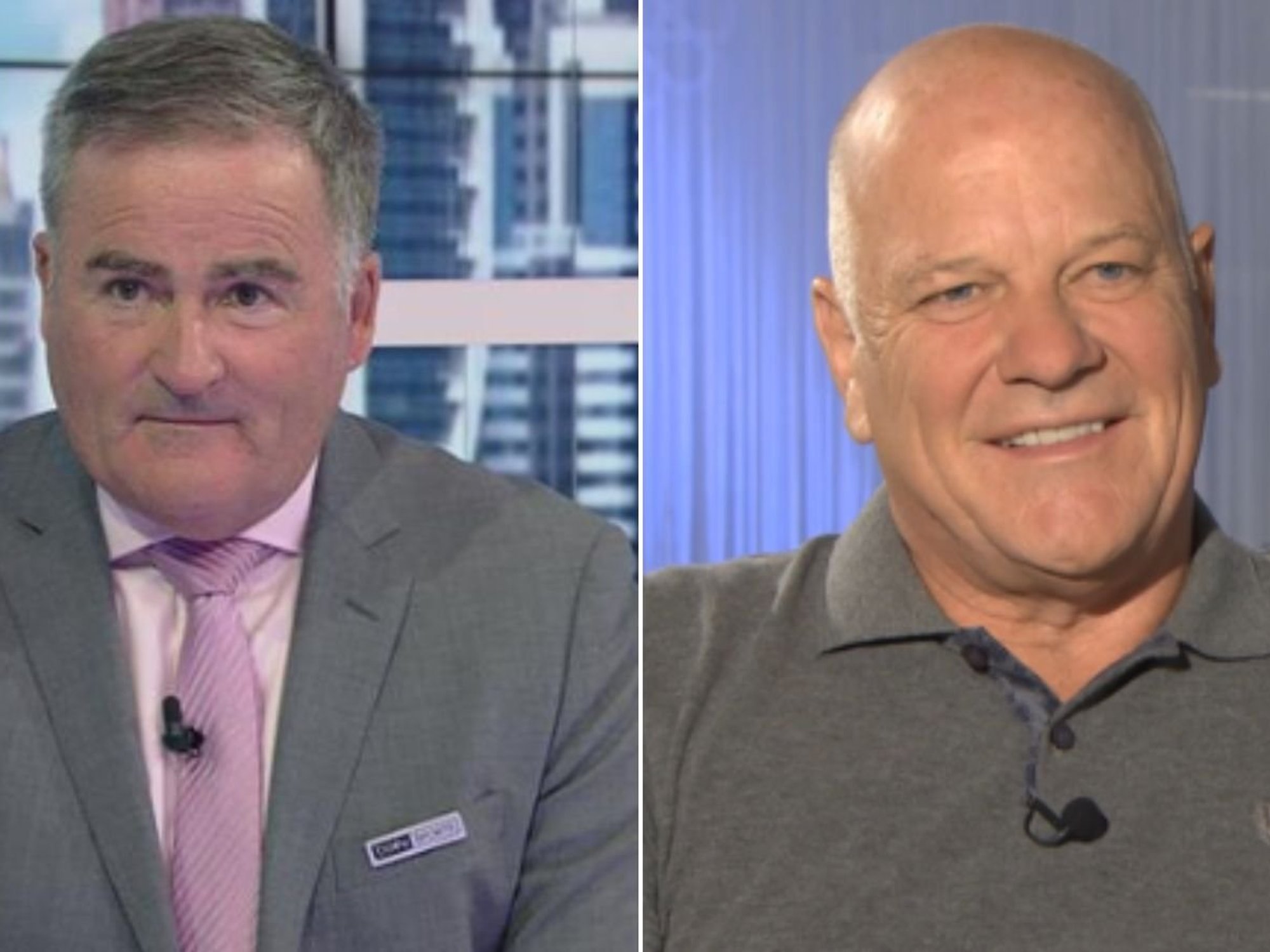Rachel Reeves urged to raise income tax by 10p for top earners to plug black hole

Suella Braverman says Rachel Reeves is 'sticking two fingers up to the British people' by refusing to take questions from GB News |
GB News

A leading think tank says increases across all bands could raise £35billion ahead of Autumn Budget
Don't Miss
Most Read
Leading economists have urged Chancellor Rachel Reeves to raise income tax rates across all income bands, arguing that sweeping rises are needed to tackle Britain’s worsening fiscal situation.
The National Institute of Economic and Social Research (NIESR) has recommended increases for basic and higher earners, despite Labour pledges not to raise major taxes.
Under the proposals, the basic rate would rise from 20p to 22p in the pound, while higher earners would see their rate increase from 40p to 50p.
The think tank said these changes would represent the most effective and least damaging option for raising revenue.
TRENDING
Stories
Videos
Your Say
The recommendations come as the Chancellor prepares for her Budget later this month and faces growing demands to present a credible plan to reduce national debt.
The institute warned that delaying difficult decisions could unsettle markets.
Stephen Millard, the institute’s deputy director, said the proposals could generate around £35billion for the Treasury.
Mr Millard said the basic rate increase would raise approximately £20billion, while the higher rate adjustment could bring in £15billion.
Current income tax rates in England and Wales charge 20 per cent on basic earnings, rising to 40 per cent for those earning above £50,270 per year and 45 per cent for individuals earning above £125,140.
Scottish taxpayers already face different rates ranging from 19 per cent to 48 per cent across several bands.

Top economists are urging Chancellor Rachel Reeves to hike income tax across all bands, citing urgent fiscal pressures
|GETTY
The recommended increases would mark a significant departure from Labour’s election manifesto.
The party committed to avoiding rises to income tax, National Insurance, VAT or corporation tax during the campaign.
The think tank argues that breaking the pledge would nevertheless be preferable to alternative fiscal measures.
Its analysis suggests that increasing income tax would have less impact on economic growth than raising other major levies or spreading smaller tax rises across the system.
David Aikman, the director of the institute, issued a stark warning about market reactions if the Government fails to outline a firm plan for addressing public finances.
LATEST DEVELOPMENTS

David Aikman has warned of sharp market repercussions if the Government fails to set out a clear fiscal plan
|GETTY
Mr Aikman said: "The risk is that markets react badly to whatever comes out in the Budget later this month - and rather than the credibility dividend that we could see happening, we see the opposite, something more like the Liz Truss moment."
His comments refer to the market turmoil following the 2022 mini-Budget and highlight concerns over fiscal credibility.
Economists say investor confidence remains sensitive to Government policy signals.
During remarks on Tuesday, Ms Reeves appeared to indicate that tax rises have not been ruled out.
The Chancellor said: "We will all have to contribute" to improving the nation’s finances.
Her statement prompted speculation that income tax increases could be considered despite manifesto commitments.
Political analysts say any deviation from campaign pledges would carry significant political risks for the Government.
The think tank maintains that income tax increases are the least damaging option for the economy.
Its assessment concludes that raising other taxes or introducing numerous smaller adjustments would carry greater long-term risks.

Chancellor Rachel Reeves will deliver her budget at the end of the month
| HM TREASURYThe Chancellor is preparing her Budget against a backdrop of rising borrowing costs and pressure to protect public services.
Officials at the institute say the scale of the fiscal gap leaves limited alternatives to tax rises.
They argue that action now would help stabilise confidence and prevent more disruptive measures later.
The proposals will form part of ongoing debate in Westminster over how the Government should approach its economic commitments.
Economists say Britain’s fiscal outlook makes significant revenue measures increasingly likely.
The Chancellor is yet to confirm whether income tax will be included in her Budget plans.
Her comments this week have signalled that difficult choices lie ahead as the Government finalises its strategy.
More From GB News










